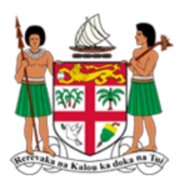Best Civil & Human Rights Lawyers in Fiji
Share your needs with us, get contacted by law firms.
Free. Takes 2 min.
Or refine your search by selecting a city:
List of the best lawyers in Fiji
About Civil & Human Rights Law in Fiji:
Civil and Human Rights in Fiji are protected under the Fijian Constitution and various international treaties that Fiji is a party to. These rights include but are not limited to the right to equality, freedom of speech, right to a fair trial, and protection from discrimination. Civil and Human Rights laws aim to ensure that all individuals in Fijian society are treated fairly and have their fundamental rights respected.
Why You May Need a Lawyer:
You may require a lawyer in Civil & Human Rights cases in Fiji if you believe your rights have been violated, such as instances of discrimination, unfair treatment, or denial of basic rights. A lawyer can help you understand your legal options, provide guidance on the best course of action, and represent you in legal proceedings to seek justice and redress for any violations.
Local Laws Overview:
In Fiji, the Constitution guarantees a broad range of Civil & Human Rights, including the right to life, personal liberty, and protection from inhuman treatment. The Fijian Constitution also establishes the Human Rights and Anti-Discrimination Commission to investigate complaints of human rights violations and promote awareness of human rights issues in Fiji.
Frequently Asked Questions:
1. What are some common examples of Civil & Human Rights violations in Fiji?
Common examples include discrimination based on race, gender, or religion, violations of freedom of speech or expression, and unfair treatment by government authorities or private entities.
2. How can I file a complaint if my rights have been violated?
You can file a complaint with the Human Rights and Anti-Discrimination Commission in Fiji. They are responsible for investigating complaints of human rights violations and providing assistance to victims.
3. Can I receive compensation for Civil & Human Rights violations in Fiji?
In some cases, victims of rights violations may be entitled to compensation for the harm they have suffered. A lawyer can help you assess your case and pursue legal action to seek damages for the violations.
4. Are there any specific laws that protect the rights of marginalized groups in Fiji?
Yes, the Fijian Constitution and various laws protect the rights of marginalized groups, including women, children, persons with disabilities, and minority communities. These laws aim to promote equality and prevent discrimination against these groups.
5. What are my legal options if I face discrimination in the workplace?
If you face discrimination in the workplace, you can file a complaint with the Employment Relations Tribunal or seek legal advice from a lawyer specializing in employment law. They can help you understand your rights and options for addressing the discrimination.
6. How long does it take to resolve a Civil & Human Rights case in Fiji?
The time it takes to resolve a Civil & Human Rights case in Fiji can vary depending on the complexity of the case, the legal procedures involved, and the cooperation of the parties. It is advisable to consult with a lawyer to get a better understanding of the timeline for your specific case.
7. Can I represent myself in a Civil & Human Rights case in Fiji?
While it is possible to represent yourself in a Civil & Human Rights case in Fiji, it is highly recommended to seek legal advice from a qualified lawyer. A lawyer can provide valuable expertise, guidance, and representation to help you navigate the legal process and protect your rights effectively.
8. What remedies are available for victims of Civil & Human Rights violations in Fiji?
Victims of Civil & Human Rights violations in Fiji may be entitled to various remedies, including compensation for damages, injunctive relief to stop ongoing violations, and declarations from courts affirming their rights. A lawyer can help you understand the available remedies and seek the appropriate relief for your case.
9. Is legal aid available for Civil & Human Rights cases in Fiji?
Yes, legal aid is available for individuals who cannot afford private legal representation in Civil & Human Rights cases in Fiji. You can contact the Legal Aid Commission of Fiji to inquire about eligibility for legal aid assistance and access to legal services for your case.
10. How can I advocate for Civil & Human Rights in Fiji?
You can advocate for Civil & Human Rights in Fiji by raising awareness about human rights issues, supporting human rights organizations and initiatives, and participating in advocacy campaigns to promote equality and protect fundamental rights. Your voice and actions can make a significant impact on advancing Civil & Human Rights in Fiji.
Additional Resources:
For further information and assistance regarding Civil & Human Rights in Fiji, you can reach out to the following resources:
- Human Rights and Anti-Discrimination Commission of Fiji
- Legal Aid Commission of Fiji
- Fiji Women's Rights Movement
- Transparency International Fiji
Next Steps:
If you require legal assistance in Civil & Human Rights in Fiji, the first step is to consult with a qualified lawyer who specializes in this area of law. They can provide you with personalized advice, guide you through the legal process, and represent your interests to seek justice and protection of your rights. Don't hesitate to seek legal help if you believe your rights have been violated.
Lawzana helps you find the best lawyers and law firms in Fiji through a curated and pre-screened list of qualified legal professionals. Our platform offers rankings and detailed profiles of attorneys and law firms, allowing you to compare based on practice areas, including Civil & Human Rights, experience, and client feedback.
Each profile includes a description of the firm's areas of practice, client reviews, team members and partners, year of establishment, spoken languages, office locations, contact information, social media presence, and any published articles or resources. Most firms on our platform speak English and are experienced in both local and international legal matters.
Get a quote from top-rated law firms in Fiji — quickly, securely, and without unnecessary hassle.
Disclaimer:
The information provided on this page is for general informational purposes only and does not constitute legal advice. While we strive to ensure the accuracy and relevance of the content, legal information may change over time, and interpretations of the law can vary. You should always consult with a qualified legal professional for advice specific to your situation.
We disclaim all liability for actions taken or not taken based on the content of this page. If you believe any information is incorrect or outdated, please contact us, and we will review and update it where appropriate.
Browse civil & human rights law firms by service in Fiji
Fiji Attorneys in related practice areas.
Browse civil & human rights law firms by city in Fiji
Refine your search by selecting a city.











